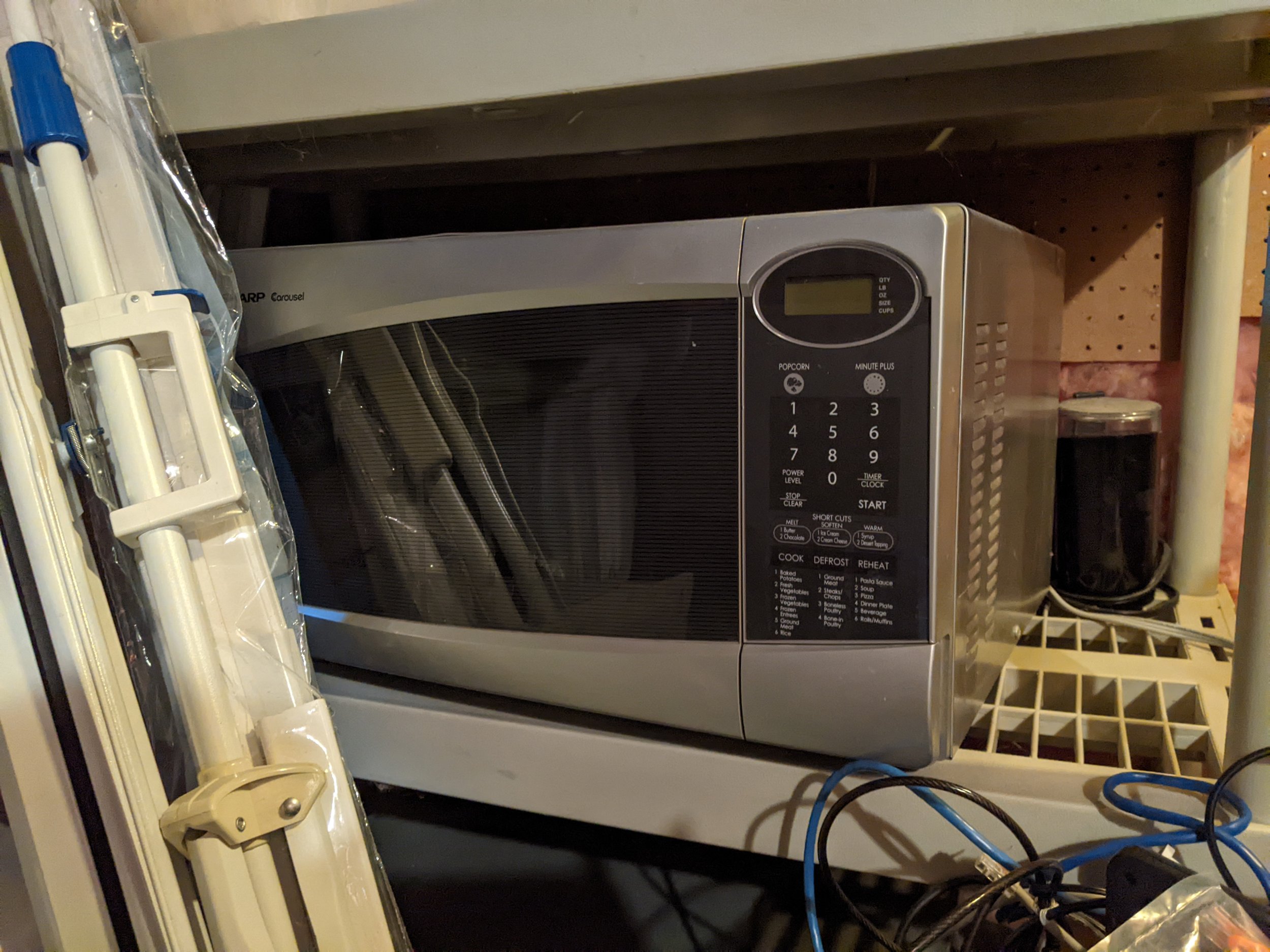98% of the time, the root of disorganization is having too many things for the space. Most of these things we don’t need, use, or love - in other words, they are clutter.
And the root of clutter is thought patterns which work against our desire to declutter, personified by what I call our Inner Reluctant Discarder - (IRD). Our IRD has an Olympic gold medal in the biathlon event known as Overthinking and Overcomplicating Things Which Are Simple and Easy.
This isn’t a judgment, it’s a fact. There is no law which says we need to keep things, or sell things, or give things to someone we know. Most of us have someone in our life who has no IRD and is free of these thought patterns.
The well-intentioned person who says: You don’t use any of this stuff, why don’t you just throw it away?
A thought pattern is made of habitual thoughts, the familiar litany of standards which flood our otherwise rational mind when faced with a decision to keep or let go of something. Or when we decide we don’t want something, and are about to put it in a donation pile.
Here’s a scenario:
We have an old microwave oven in our basement that we don’t need anymore since we got a new one 5 years ago. It’s working fine as far as we know.
We decide that we don’t want to keep it - yay! That’s the first step.
Then, when we try to put it in a pile of stuff to go to the donation center, the counteractive thought pattern kicks in:
Wait, maybe my friend’s daughter could use this. She’s going to college next year.
What if it’s a bit dirty on the inside? Can I still donate it?
I should put this for free on my local Facebook community page - surely there is someone nearby who could use it.
Would someone pay $10 for this? I really should try to sell it - every little bit helps.
And on and on. There are many possibilities and there is no time to decide, or to act on any of them, so we put the microwave back on the shelf, to await an ideal future destination and owner which exists only in our minds. As we’ve done before, with this same item. .
We had a perfect and simple solution right in front of us - putting it in the pile of donations which ideally were one their way to the local charity thrift store. And yet, our head got in the way.
As for the option of donating it to a charity thrift store - someone who really wants it will buy it, and the money benefits a charity. What’s not to love?
Well, our Inner Reluctant Discarder doesn’t love this at all. She needs to make things as complex and difficult as possible.
Why? Because she’s subconciously convinced us that we don’t deserve nice things like an uncluttered house. Not without a LOT of effort on our part to find the perfect final resting place for every single unwanted item in our house. And deep down, we know the logistical reality of this - we know we can’t possibly make that happen. So we’ll never have a serene, uncluttered closet or basement. And rightly so, we’re not good enough to have a magazine-perfect, calm bedroom.
I’ll tell you another reason why our IRD overthinks and complicates this.
Because when we abandon this microwave at the thrift store and then go on our merry way, here’s what will happen to it: someone we don’t know, at a time we don’t know, at a price we don’t know, will buy this microwave and place it it in a home we don’t know.
But what’s so bad about that?
Because we don’t have control over the microwave once we drop it off.
And our IRD loves the delusion of control.
Here’s the delusion:
The more control we have over every item in our house, as well as when it leaves the house, the nicer our house will be, and the better of a person we will be. And we need to constantly strive to be better, because we are not good enough the way we are.
I’m not going to use this post to figure out why these thought patterns are there - that’s a complex analysis and really, it’s not relevant to the immediate problem of decluttering our homes.
How can we tame our IRD, so we can easily release what no longer serves us without driving ourselves crazy?
I will delve more deeply into these mind shifts one by one in future posts, but here is an overview of how we can acknowledge and make peace with our IRD
When a thought comes into your head which will derail the decluttering process, ask yourself if the thought is a fact or a belief.
Ask yourself, Am I a good person, most of the time? If the answer is yes, then you are a good person. And being good is good enough. There are no degrees of goodliness - it’s like being pregnant - you are or you aren’t.
Ask yourself if you know with certainty what the perfect home is for all of your unwanted items. Are you the Queen of All Things?.
Ask yourself if you have the ability to predict the future.
And most importantly, ask yourself if you can trust that the universe will help the microwave land in the right place.
So out the door it goes, and you’re one step closer to having a decluttered, peaceful home.



